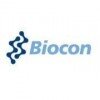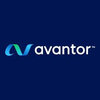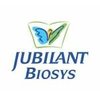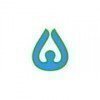Filter interviews by
Praj Industries Graduate Engineer Trainee (Get) Interview Questions and Answers
Praj Industries Graduate Engineer Trainee (Get) Interview Experiences
2 interviews found
Online test conducted testing aptitude and technical knowledge
It was a group activity using jenga
(2 Questions)
- Q1. Self introduction
- Q2. Technical knowledge
I appeared for an interview before Mar 2023.
Aptitude test was technical and quantitative type
(1 Question)
- Q1. Group activity was about making a bridge
(1 Question)
- Q1. Technical interview was taken on internship, project and favourite subjects
Top trending discussions






Interview questions from similar companies

Graduate Engineer Trainee (Get) Interview Questions & Answers
Biocon Limitedposted on 4 May 2021
I applied via Campus Placement and was interviewed before May 2020. There was 1 interview round.
Interview Questionnaire
2 Questions
- Q1. Why SF6 gas is used in circuit breakers?
- Ans.
SF6 gas is used in circuit breakers due to its excellent electrical insulation properties and high dielectric strength.
SF6 gas has high dielectric strength, making it an effective insulator in high voltage applications.
It has excellent arc-quenching properties, allowing it to quickly extinguish electrical arcs.
SF6 gas is chemically stable and non-toxic, making it safe for use in circuit breakers.
It has a high thermal c...
- Q2. What protections are used in a substation?
- Ans.
Substations use various protections to ensure safety and reliability of power supply.
Overcurrent protection
Ground fault protection
Transformer protection
Surge protection
Circuit breaker
Relay protection
Isolation switches
Lightning arresters
Fire protection
Security measures
Interview Preparation Tips
If ua strong with basics then surely u can crack it easily.

Graduate Engineer Trainee (Get) Interview Questions & Answers
Biocon Limitedposted on 23 May 2020
I applied via Referral and was interviewed in Dec 2019. There were 3 interview rounds.
Interview Questionnaire
4 Questions
- Q1. Definition and working and different types of pumps and boilers ??
- Ans.
Pumps and boilers are essential equipment in various industries. Pumps are used to transfer fluids, while boilers generate steam.
Pumps are devices that move fluids by mechanical action.
There are different types of pumps, such as centrifugal pumps, reciprocating pumps, and rotary pumps.
Centrifugal pumps are commonly used in water supply systems and HVAC applications.
Reciprocating pumps are used in high-pressure applicat...
- Q2. What is the working of ahu ?
- Ans.
AHU stands for Air Handling Unit. It is a device used to regulate and circulate air as part of a heating, ventilation, and air conditioning (HVAC) system.
AHU is responsible for conditioning and distributing air within a building.
It consists of components like fans, filters, heating and cooling coils, dampers, and controls.
The fans in AHU draw in outside air, filter it, and then distribute it to various areas of the bui...
- Q3. How many types of boilers
- Ans.
There are several types of boilers used in various industries and applications.
There are four main types of boilers: fire-tube, water-tube, electric, and biomass.
Fire-tube boilers are commonly used in steam locomotives and industrial plants.
Water-tube boilers are used in power stations and large industrial settings.
Electric boilers are used for heating purposes in residential and commercial buildings.
Biomass boilers us...
- Q4. Which types of machines are used in pharmaceutical company
Interview Preparation Tips

Interview Questionnaire
1 Question
- Q1. How to design vacuum pump
- Ans.
Designing a vacuum pump involves selecting the appropriate type, determining the required flow rate and pressure, and sizing the components.
Choose the type of vacuum pump based on the application (e.g. rotary vane, diaphragm, scroll, etc.)
Determine the required flow rate and pressure for the system
Size the components, including the pump, motor, and piping, to meet the flow rate and pressure requirements
Consider factors...

I applied via Referral and was interviewed before Mar 2023. There were 2 interview rounds.
(3 Questions)
- Q1. Q) Introduce about yourself
- Q2. Q) Condensor area calculation and drying time..
- Ans.
Condenser area calculation is based on heat transfer requirements and drying time depends on factors like temperature, humidity, and airflow.
Calculate condenser area based on heat transfer requirements and desired cooling capacity
Consider factors like temperature, humidity, and airflow when determining drying time
Use formulas such as Q = U * A * deltaT for heat transfer calculations
Optimize condenser design to maximize
- Q3. Q) why do we use water as major part of utility.
- Ans.
Water is used as a major part of utility due to its abundance, versatility, cost-effectiveness, and environmentally friendly properties.
Abundance: Water is readily available in nature and can be easily sourced for various industrial processes.
Versatility: Water can be used for a wide range of applications such as cooling, cleaning, and as a solvent.
Cost-effectiveness: Water is relatively inexpensive compared to other u...
(1 Question)
- Q1. Why am I will to relocate.
Interview Preparation Tips

(2 Questions)
- Q1. What about your experience
- Q2. What about your profile
(2 Questions)
- Q1. What is scale-up
- Ans.
Scale-up is the process of increasing the production capacity of a system or process.
Scale-up involves transferring a process from a small scale to a larger scale.
Factors such as equipment size, operating conditions, and material properties need to be considered during scale-up.
Examples of scale-up include increasing the batch size of a chemical reaction or transitioning from a lab-scale production to a pilot plant or
- Q2. What is reaction kinetics
- Ans.
Reaction kinetics is the study of rates at which chemical reactions occur.
Reaction kinetics involves studying the factors that affect the speed of a chemical reaction.
It includes determining the reaction mechanism, rate laws, and reaction rates.
Examples of factors affecting reaction kinetics include temperature, concentration, and catalysts.
Interview Preparation Tips

Assistant Manager Interview Questions & Answers
Transasia Bio-Medicalsposted on 21 Dec 2023

(4 Questions)
- Q1. Factor affecting the lyophilization
- Ans.
Factors affecting lyophilization
Temperature: The temperature during the lyophilization process affects the rate of sublimation and drying.
Pressure: The pressure inside the lyophilizer chamber affects the rate of sublimation and drying.
Product formulation: The composition and concentration of the product being lyophilized can impact the process.
Freezing method: The method used to freeze the product prior to lyophilizati...
- Q2. What is the meaning of Triple point
- Ans.
The triple point is the temperature and pressure at which all three phases of a substance (solid, liquid, and gas) coexist in equilibrium.
The triple point is a unique combination of temperature and pressure for a substance.
At the triple point, the solid, liquid, and gas phases of the substance can coexist in equilibrium.
It is the point on a phase diagram where all three phases meet.
The triple point is a fixed point use...
- Q3. Validation of lyophilizer
- Ans.
Validation of lyophilizer involves testing and documentation to ensure its performance and reliability.
Validation of lyophilizer is necessary to ensure that it consistently produces high-quality freeze-dried products.
The process involves testing various parameters such as temperature, pressure, and drying time to ensure they meet predetermined specifications.
Documentation of the validation process is crucial for regula...
- Q4. How to maintain HSO in lyophilized product
- Ans.
Maintaining HSO in lyophilized product involves proper storage conditions and packaging.
Store the lyophilized product in a cool and dry environment to prevent moisture absorption.
Use appropriate packaging materials that provide a barrier against moisture and oxygen.
Ensure the lyophilized product is sealed tightly to prevent any exposure to air.
Consider using desiccants or moisture-absorbing packets in the packaging.
Per...

I applied via Company Website and was interviewed in Mar 2021. There was 1 interview round.
Interview Questionnaire
1 Question
- Q1. Why should i hire you
- Ans.
I am highly motivated, have relevant experience, and possess strong skills that make me a valuable asset to your team.
I have a proven track record of success in similar roles.
I am a quick learner and can adapt to new environments and tasks easily.
I have excellent communication and interpersonal skills.
I am highly organized and detail-oriented, ensuring accuracy and efficiency in my work.
I am a team player and can colla...
Interview Preparation Tips

Business Analyst Interview Questions & Answers
Thermo Fisher Scientificposted on 16 Jul 2020
I applied via Naukri.com and was interviewed before Jul 2019. There were 5 interview rounds.
Interview Questionnaire
2 Questions
- Q1. How will you handle temperament issues of your boss ?
- Q2. If your boss is not supporting what will you do ?
Interview Preparation Tips
Praj Industries Interview FAQs
Tell us how to improve this page.
Praj Industries Interviews By Designations
- Praj Industries Process Engineer Interview Questions
- Praj Industries Commissioning Engineer Interview Questions
- Praj Industries Engineer Interview Questions
- Praj Industries Senior Engineer Interview Questions
- Praj Industries Graduate Trainee Interview Questions
- Praj Industries Graduate Engineer Trainee (Get) Interview Questions
- Praj Industries Production Manager Interview Questions
- Praj Industries Design Engineer Interview Questions
- Show more
Interview Questions for Popular Designations
- Graduate Apprentice Trainee Interview Questions
- Graduate Apprenticeship Trainee Interview Questions
- Graduate Trainee Interview Questions
- Graduate Engineer Interview Questions
- Production Graduate Engineer Trainee Interview Questions
- Graduate Student Interview Questions
- Graduate Apprentice Interview Questions
- Post Graduate Engineer Trainee [pget] Interview Questions
- Show more
Praj Industries Graduate Engineer Trainee (Get) Interview Process
based on 2 interviews
Interview experience
Interview Questions from Similar Companies
Fast track your campus placements
Praj Industries Graduate Engineer Trainee (Get) Reviews and Ratings
based on 2 reviews
Rating in categories
|
Assistant Manager
139
salaries
| ₹5.4 L/yr - ₹18 L/yr |
|
Process Engineer
117
salaries
| ₹2.8 L/yr - ₹11.4 L/yr |
|
Associate Manager
102
salaries
| ₹6.5 L/yr - ₹15.1 L/yr |
|
Deputy Manager
81
salaries
| ₹9.1 L/yr - ₹20 L/yr |
|
Senior Engineer
55
salaries
| ₹4.7 L/yr - ₹11.2 L/yr |

Biocon Limited

Thermo Fisher Scientific

Biocon Biologics

Panacea Biotec
- Home >
- Interviews >
- Praj Industries Interview Questions >
- Praj Industries Graduate Engineer Trainee (Get) Interview Questions















